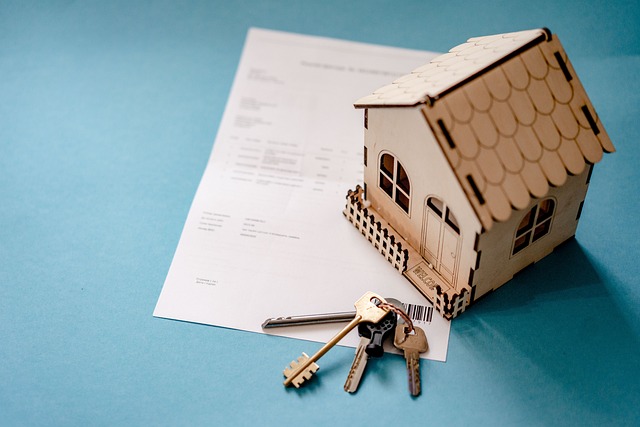Navigating EC Handover: Guide for Buyers in Singapore
The EC handover process in Singapore involves multiple steps from initial inspection to final legalities, crucial for prospective homeowners. Awareness of the average price of ECs is essential for budgeting and understanding maintenance fees. The process spans…….

The EC handover process in Singapore involves multiple steps from initial inspection to final legalities, crucial for prospective homeowners. Awareness of the average price of ECs is essential for budgeting and understanding maintenance fees. The process spans 6-12 months, with buyers receiving updates on payments and expected handover dates. Legal documentation, including verification of property titles, is vital, especially for foreign buyers. Paying the pre-agreed average price of ECs through secure methods ensures a successful transaction. Post-handover responsibilities include managing financial obligations, maintaining property conditions, and adhering to neighborhood regulations. Technical issues and delays in the Electronic Conveyance (EC) system require proactive measures from buyers. First-time owners must navigate unique EC living aspects and plan within their budget, influenced by location-specific factors and historical average price trends. Strategic investment decisions maximize returns, considering market movements and property value influencers.
“Navigating the EC Handover Process as a Buyer: A Comprehensive Guide. Buying an Executive Condo (EC) is an exciting investment step, but understanding the handover process is crucial. This guide breaks down every aspect of the EC handover, from the timeline and legalities to payment and post-handover responsibilities. We explore common issues, the impact of location on resale value, and average price trends in Singapore’s competitive market. By following these insights, buyers can ensure a smooth transition into their new homes.”
- Understanding EC (Executive Condo) Handover: A Buyer's Perspective
- The Timeline: When to Expect the Handover
- Legal and Document Requirements for Handover
- Payment Process: Settling the Final Amount
- Post-Handover Responsibilities of Buyers
- Common Issues During EC Handover and How to Address Them
- What Happens After the Handover: Next Steps for New Owners
- The Impact of Location on EC Resale Value in Singapore
- Analyzing the Average Price Trends of ECs in Singapore
- Tips for Maximizing Your Investment in Executive Condos
Understanding EC (Executive Condo) Handover: A Buyer's Perspective

When purchasing an Executive Condo (EC) in Singapore, understanding the handover process is crucial for buyers. The EC handover involves several key steps, from initial site selection to final legal signatures. It’s a significant phase where buyers transition from being prospective owners to actual homeowners. During this period, buyers not only inspect the property but also ensure all necessary repairs and renovations are completed to their satisfaction.
The average price of EC in Singapore plays a significant role in this process. As one of the most affordable housing options in the city-state, ECs attract a diverse range of buyers. Knowing the expected costs, including maintenance fees and potential upgrade expenses, is essential for budgeting purposes. Handover also marks the beginning of homeowners’ association (HOA) involvement, where buyers are introduced to the rules and regulations that govern their new community.
The Timeline: When to Expect the Handover

The EC (Executive Condominium) handover process in Singapore typically begins once the developer receives all necessary approvals and payments from the buyer. After this, the expected timeline for the handover can range from 6 to 12 months, depending on various factors such as project complexity and current construction progress. This period is crucial as it allows developers to complete final touches and obtain relevant certificates before delivering the property to the buyer.
During this time, buyers should expect regular updates from their developer, including information about the Average Price Of EC In Singapore, any remaining payments required, and the projected handover date. Staying in close communication ensures a smoother transition and enables buyers to plan their move accordingly.
Legal and Document Requirements for Handover

When preparing for the EC handover process, buyers must be aware of the legal and document requirements to ensure a smooth transition. The first step involves verifying all legal documents related to the property, including the Certificate of Title, which confirms ownership. This is crucial as it establishes the buyer’s right to occupy and transfer the property. Additionally, buyers should gather essential documents such as identification cards, passport copies, and proof of financial means to satisfy regulatory requirements for foreign purchases, especially considering Singapore’s strict rules on real estate transactions, particularly for non-residents.
The Average Price Of EC in Singapore plays a significant role in this process, as buyers must provide evidence of funds sufficient to cover the property cost. This ensures transparency and helps in navigating any potential legal or financial hurdles during handover. It is advisable to consult with legal professionals who can guide through these requirements, ensuring all documents are in order before finalizing the EC handover.
Payment Process: Settling the Final Amount

When finalizing the EC handover process, settling the final amount is a crucial step for buyers. The payment process typically involves paying the average price of EC in Singapore as agreed upon during the negotiation stage. This can be done through various secure methods, ensuring that both parties are protected and satisfied with the transaction.
The buyer will need to ensure that all outstanding costs, including any additional fees or adjustments discussed, are accurately calculated and settled. It is essential to keep records of all financial transactions throughout the process to avoid any misunderstandings later on. This ensures a smooth handover and helps maintain a positive relationship between the buyer and the seller.
Post-Handover Responsibilities of Buyers

After successfully completing the EC handover process, buyers have a crucial role in ensuring a smooth transition into their new home. Post-handover responsibilities include familiarizing themselves with the property’s maintenance and any associated fees, such as common area charges or facility management costs. Understanding these financial obligations is essential, especially considering the average price of ECs in Singapore, to avoid any unexpected expenses.
Buyers should also take proactive steps to ensure the property is well-maintained. This involves regular inspections, addressing any immediate maintenance issues, and keeping records of repairs. Additionally, staying informed about neighborhood regulations and community guidelines is vital for a harmonious living environment.
Common Issues During EC Handover and How to Address Them

The Electronic Conveyance (EC) handover process in Singapore is a streamlined method for transferring property ownership, but it’s not without challenges. Common issues include delays caused by technical glitches or paperwork mishaps, which can impact the average price of EC in Singapore, as buyers may face longer waiting times and potential market fluctuations during this period.
To address these issues, buyers should ensure they work with experienced agents who are well-versed in the EC system. Clear communication with all parties involved—from lawyers to government agencies—is vital. Additionally, staying updated on regulatory changes and keeping a close eye on paperwork progress can help mitigate delays, ensuring a smoother handover process and potentially saving buyers money in the long run when considering the average price of EC properties in Singapore.
What Happens After the Handover: Next Steps for New Owners

After the EC handover process, new owners typically embark on a series of essential next steps to ensure a smooth transition into their new home. The first task is often to familiarize themselves with the property’s features and systems, especially if it’s their first time owning an EC flat in Singapore. This includes understanding the unique aspects of living in an EC, such as common facility management and potential community events.
New owners should also plan for practical considerations like furnishing and decorating, taking into account the average price of ECs in Singapore to align their budget accordingly. They may choose to engage interior designers or explore local markets to source affordable yet quality furniture, transforming their new space into a home that reflects their style and needs. Additionally, updating essential documents, such as utility accounts and property insurance, is crucial to ensure smooth ongoing management of the EC flat.
The Impact of Location on EC Resale Value in Singapore

The location of an EC (Executive Condominium) plays a significant role in its resale value, especially in a densely populated city-state like Singapore. In terms of the average price of EC in Singapore, properties located in prime areas tend to command higher prices due to their proximity to key amenities, excellent connectivity, and desirable neighborhoods. These locations often attract buyers seeking convenient lifestyles with easy access to schools, shopping centers, and recreational facilities.
For instance, ECs situated along major transport hubs or within established business districts typically experience higher demand, leading to premium pricing. Conversely, properties in less urbanized areas might have lower resale values due to limited accessibility and fewer nearby conveniences. Understanding the market dynamics and location-specific factors is crucial for both buyers and sellers navigating the EC resale landscape in Singapore.
Analyzing the Average Price Trends of ECs in Singapore

In Singapore, the average price of ECs (Executive Condos) has been a key indicator for potential buyers navigating the real estate market. Over the past few years, prices have shown a steady growth trend, reflecting both the increasing demand and the scarcity of land suitable for such developments. Understanding these trends is crucial for buyers looking to make informed decisions in the EC market.
By analyzing historical data, we can observe that the average price of ECs in Singapore has been consistently rising, with occasional fluctuations. This upward trajectory is influenced by various factors including economic growth, government policies promoting home ownership, and the appeal of ECs as an affordable housing option within the city-state’s vibrant urban landscape. Such insights empower buyers to anticipate market movements and make strategic choices when considering purchases in this segment.
Tips for Maximizing Your Investment in Executive Condos

Maximizing your investment in Executive Condos (ECs) starts with understanding the market. The average price of ECs in Singapore varies, but knowledge of recent sales data and trends can help buyers make informed decisions. Staying updated on the latest pricing patterns allows you to identify opportunities for negotiation or strategic timing for purchase.
Additionally, focusing on key features and amenities that enhance property value is essential. Good location, quality construction, efficient layout, and modern facilities are highly sought-after. Considering these aspects can ensure your EC investment not only maintains its value but appreciates over time in the competitive Singapore real estate market.
The EC handover process, while potentially complex, is a crucial milestone for buyers. By understanding each step from timeline and legal requirements to post-handover responsibilities, new owners can navigate this journey with confidence. Familiarizing yourself with location-based resale value trends and average price movements in Singapore’s EC market, as well as implementing investment strategies, will help maximize the return on your executive condo investment. Remember, knowledge is power – the more you know about the handover process and property trends, the better equipped you’ll be to make informed decisions.







